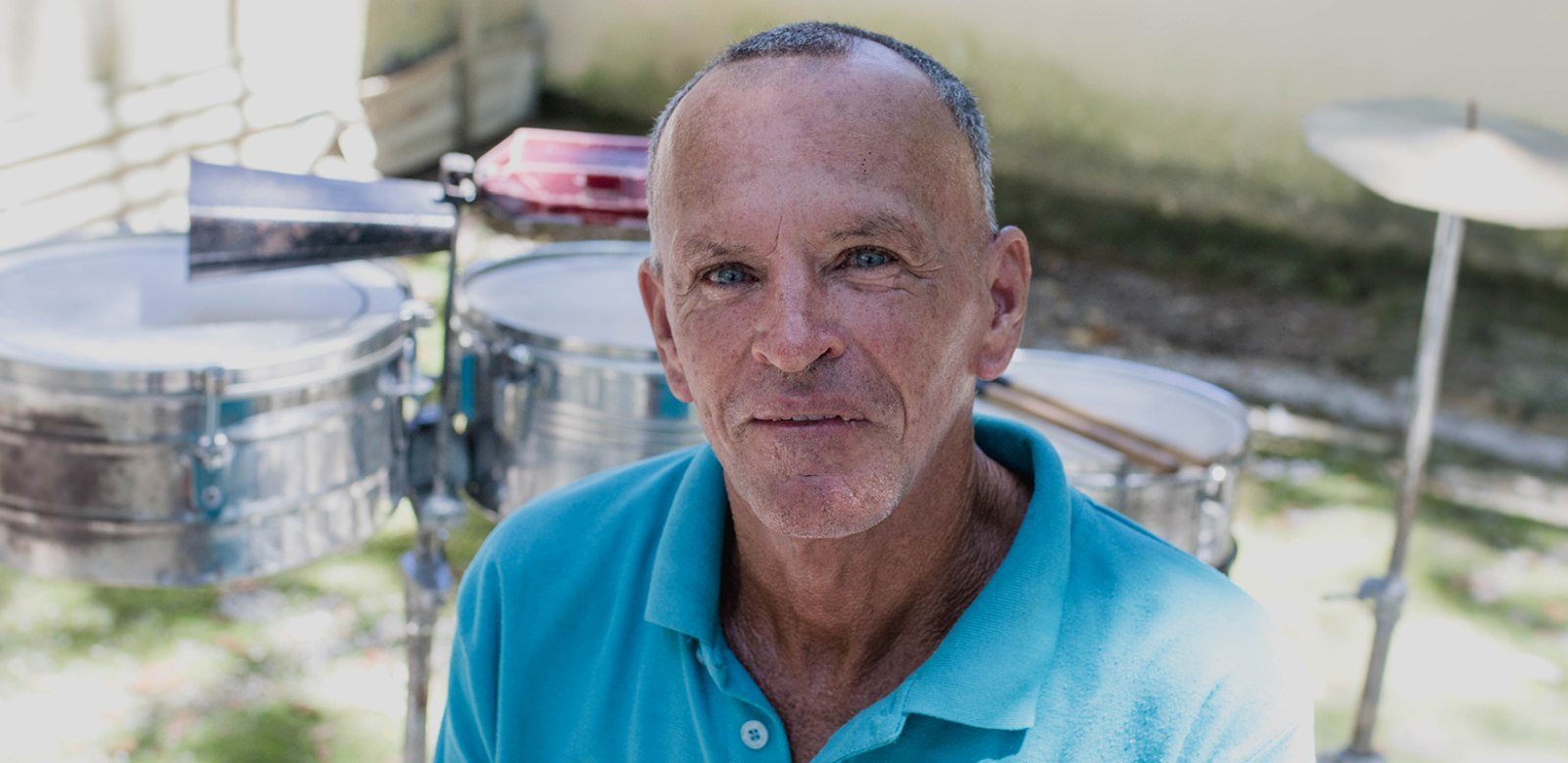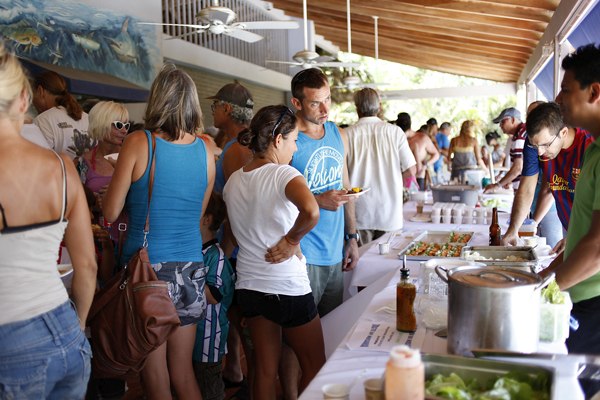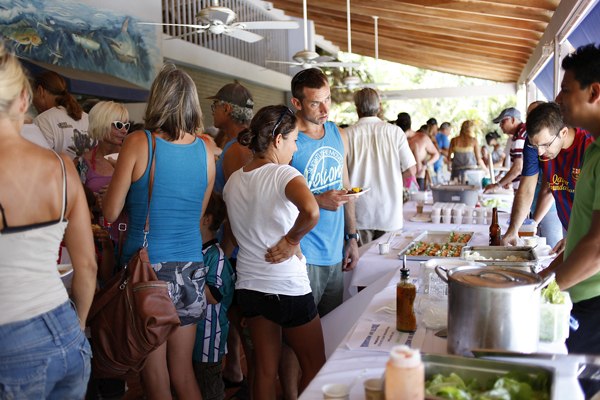
The dust sticks to the damp skin on my face and arms. It’s Monday morning and the gleam of the lights up the white gravel street in San Rafael de Liberia.
We arrive at the sector known as La Saca de Agua. Here, Carlos Isidro Rodríguez Cortés “Macarrón” lives. He’s a Liberian celebrity known for putting the flavor in parties and fairs with the music of his timbales.
Finding him wasn’t easy because it is hard to locate Carlos Rodríguez at his house and he doesn’t use a cell phone.
When we arrive at the house, Macarrón had already left early to work with his wheelbarrow, which he uses to collect recyclable products and junk so he can sell it.
Finally, after searching for him around the vicinity, we found him enjoying the shade under an almond tree, sitting there and chatting with a group of friends with a baby bottle in his hand.
As thin as a noodle – which is where his nickname, Spanish for macaroni, comes from – with blue eyes and reddish skin from long days spent walking under the sun, Macarrón has more than enough invitations to have a drink and throw a party.
Pure Ear
Once we got to his house, Macarrón tells us that the timbales are untuned because he needs to replace the drum heads, but that doesn’t stop him from starting to play a party tune. He knows what people like and he has the capacity to put a smile on anyone’s face.
Once you see him start to play you immediately feel the rhythm flow. With drumsticks in both hands he executes a variety of constant strikes; first on the rims and then drumrolls on the drum heads while, with his left hand, he alternates beats on the frame of the timbales and with his right hand hits the bell, wood block and cymbal (instruments that complement the drums) to keep tempo throughout the piece.
With this musical combo, dancing included, Macarrón doesn’t only put on a show. He steals it. Those who watch him play leave with the impression of a cheerful chef that seasons delicious food with his best sauce.
How did you learn to play? I ask him. “I learned to play by pure ear. I don’t know how to read sheet music,” he tells me. But this hasn’t been an obstacle. He once played with the famous Maribel Marimba Orchestra of Santa Cruz.
Marimba, Timbales and Party
Music is in the blood of Carlos Rodriguez’s family. He remembers that some of his cousins had a musical group in Atenas, Alajuela. In 1950 his father Clodomiro Rodríguez decided to bring his wife to Mogote de Bagaces and in 1963 Macarrón was born.
“I’m ‘panzagría’ (a name given to people from Bagaces) but I have Liberia in my heart,” he says with a smile.
At age 16 he started to “flirt” with the marimba, the drumset and his first timbales that he made himself out of gallon-size plastic jugs.
Some 15 years ago, his friend Carlos Guadamuz gave him the timbales that he uses now.
Since then, his music sounds in community centers, bullfights, popular parties and it even livens up the environment during Municipal Liberia soccer games.
Currently, Macarrón plays with the Liberian marimba artist Heriberto Alvarado, known as “Chino Cajeta,” Spanish for Chinese toffee, and owner of Marimba La Norteñita.
Heriberto Alvarado says that coupling the sound of the marimba with Macarrón’s timbales creates a mix that transmits party.
“For the July 25 celebrations we have plenty of shows,” says Alvarado, who believes that artists like Macarrón deserve to be taken more into consideration in the canton’s cultural activities and receive better economic compensation. “I think people get even more excited when they hear the sound of the marimba with timbales. It’s an added value.”
“I’d like to live off of music, but it’s not possible,” a resigned Macarrón says. “I get excited when I see people content and dancing to my music. That makes me happy.”
More Information
If you wish to enjoy marimba and timbale music and support these Guanacastecan artists you can call Heriberto Alvarado at 8509-8218 or 8670-7091







Comments